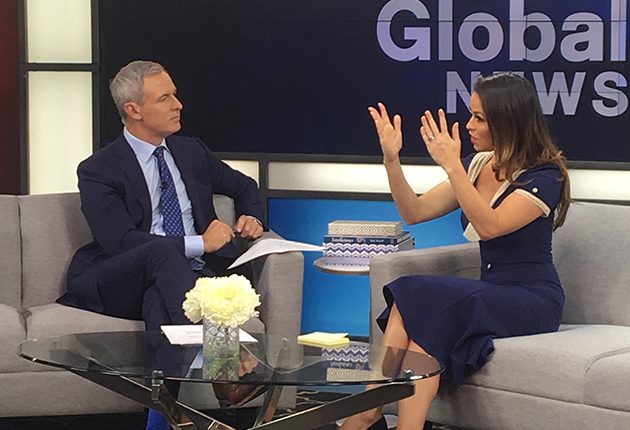December 5, 2017
How to Have Those Difficult Conversations With Your Partner

Experts are constantly touting the value of “difficult conversations” in intimate relationships. But if a conversation is difficult, how do you initiate it to begin with? Do you bring it up at the dinner table or in the bedroom? Or should you wait until your partner in-laws are visiting to really up the awkward ante? Kidding. Obviously.
This morning, Jess joined Jeff on The Morning Show to share her top strategies for starting challenging conversations with your partner, but some of these approaches could also be used to tackle tough topics with your kids, friends, and parents. Check out the video and summary below.
1. We all want to have these tough conversation, but they’re intimidating. What’s an easy way to get them started?
Use popular media (tv shows, books, magazines, news headlines) as inspiration to have conversations about difficult topics. For example, politician or celebrity divorce and affair rumours can help you to talk about cheating — your fears, your insecurities, how you can work together to stay monogamous and what monogamy really means to you. If you can think of a topic related to sex or relationships, you can find an example in popular and news media and use it as a natural way to bring up difficult topics.
2. Are there any tools we can use to initiate these dialogues?
Use technology to your advantage. Sometimes having difficult conversations via text can help ease you into more challenging topics. You have the opportunity to reread and edit your thoughts and you can use emoticons to clearly convey your emotions. Emoticons can be especially helpful if you find that your partner has difficulty reading your tone or facial expressions or if you have difficulty finding the words to express how you’re feeling.
3. What about a therapist? We all know that therapy and counselling can help, so what stops people from seeking professional help?
Stigma plays a role, but it’s slowly eroding. And I believe the perception that we don’t have enough time to see a therapist because it’s a long-term commitment also impedes people from seeking help. Therapy and counselling need not be long-term. If you’re “stuck” on an issue, you can make a *single* appointment to ensure that you dedicate time to addressing it without phones, kids and other distractions. If you’re looking for someone who will see you online, I have a roster of great therapists I’m happy to share with you!
4. What should you do if your partner refuses to talk?
I need more time to flesh this out, but here are a few brief suggestions to consider:
a. Try talking shoulder to shoulder as opposed to face-to-face. Talk while you’re doing something else like walking or engaging in some form of physical activity. Not everyone is comfortable with intense face-to-face conversations.
b. Consider the role you play in discouraging them from really engaging in these conversations. Do you dominate the conversation or interrupt? Do you make demands and accusations? Is your tone warm or judgmental?Communication is a two-way street and it’s rare that it’s really one person shutting it down.
c. Go to therapy alone. Don’t use their unwillingness to see a therapist as an excuse to avoid getting the help you need. A professional may be able to help you communicate with them more effectively and increase the likelihood that they’ll engage in tough conversations.










